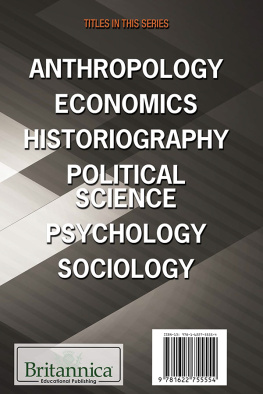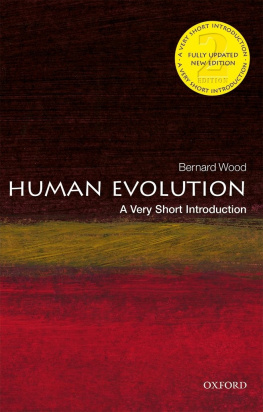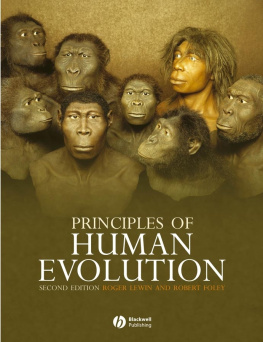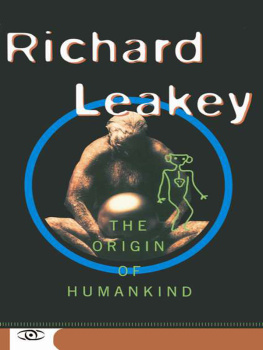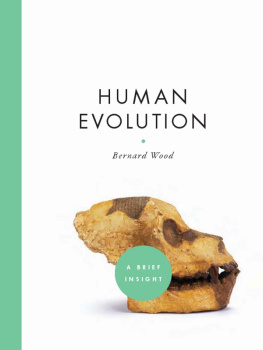Human Social Evolution
Human Social Evolution
THE FOUNDATIONAL WORKS OF RICHARD D. ALEXANDER
Edited by Kyle Summers
and
Bernard Crespi


Oxford University Press is a department of the University of Oxford.
It furthers the Universitys objective of excellence in research, scholarship, and education by publishing worldwide.
Oxford New York
Auckland Cape Town Dar es Salaam Hong Kong Karachi Kuala Lumpur Madrid Melbourne Mexico City Nairobi New Delhi Shanghai Taipei Toronto
With offices in
Argentina Austria Brazil Chile Czech Republic France Greece Guatemala Hungary Italy Japan Poland Portugal Singapore South Korea Switzerland Thailand Turkey Ukraine Vietnam
Oxford is a registered trademark of Oxford University Press
in the UK and certain other countries.
Published in the United States of America by
Oxford University Press
198 Madison Avenue, New York, NY 10016
Oxford University Press 2013
All rights reserved. No part of this publication may be reproduced, stored in a retrieval system, or transmitted, in any form or by any means, without the prior permission in writing of Oxford University Press, or as expressly permitted by law, by license, or under terms agreed with the appropriate reproduction rights organization. Inquiries concerning reproduction outside the scope of the above should be sent to the Rights Department, Oxford University Press, at the address above.
You must not circulate this work in any other form
and you must impose this same condition on any acquirer.
Library of Congress Cataloging-in-Publication Data
Human social evolution : the foundational works of Richard D. Alexander / edited by Kyle Summers and Bernard Crespi.
pages cm
Includes bibliographical references.
ISBN 9780199791750 (alk. paper)
1. Alexander, Richard D.Influence. 2. Alexander, Richard D. Criticism and interpretation. 3. Human evolution. 4. Social evolution. 5. Natural selection.
I. Summers, Kyle.
GN281.H8495 2013
599.938dc23
2013017153
9 8 7 6 5 4 3 2 1
Printed in the United States of America
on acid-free paper
CONTENTS
Laura Betzig
The Adaptationist Program
Ann Arbor, MI, 48109 USA
lbetzig@gmail.com
Stan Braude
Department of Biology
Washington University in St. Louis
Campus Box 1137, One Brookings Drive
St. Louis, MO 63130-4899 USA
braude@wustl.edu
Bernard J. Crespi
Department of Biological Sciences
Simon Fraser University
8888 University Drive
Burnaby, B.C. Canada V5A 1S6
crespi@sfu.ca
Robin I.M. Dunbar
Department of Psychology
Magdalen College
University of Oxford
Oxford, OX1 2JD, United Kingdom
robin.dunbar@psy.ox.ac.uk
Mark Flinn
Department of Anthropology
University of Missouri
Columbia, Missouri 65211-1440 USA
FlinnM@missouri.edu
Steven A. Frank
Department of Ecology and
Evolutionary Biology
University of California
Irvine, CA 92697-2525 USA
safrank@uci.edu
William Irons
Department of Anthropology
Northwestern University
1810 Hinman Avenue
Evanston, IL 60208-1310 USA
w-irons@northwestern.edu
David C. Lahti
Department of Biology
Queens College, City University of
New York
65-30 Kissena Boulevard
Flushing, NY 11367 USA
david.lahti@qc.cuny.edu
Bobbi Low
School of Natural Resources and
Environment
University of Michigan
Ann Arbor, MI 48109 USA
bobbilow@umich.edu
David Queller
Department of Biology
Washington University in St. Louis
Campus Box 1137, One Brookings Drive
St. Louis, MO 63130-4899 USA
queller@wustl.edu
Paul W. Sherman
Department of Neurobiology and
Behavior
W307 Seeley G. Mudd Hall
Cornell University
Ithaca, NY, 14853 USA
pws6@cornell.edu
Karl Sigmund
Faculty for Mathematics
University of Vienna
Nordbergstrasse 15
A-1090, Vienna, Austria
Karl.Sigmund@univie.ac.at
Beverly I. Strassmann
Department of Anthropology
University of Michigan
419 West Hall,
1085 S. University Ave.
Ann Arbor, MI 48109-1107 USA
bis@umich.edu
Kyle Summers
Department of Biology
East Carolina University
Greenville, NC 27858 USA
summersk@ecu.edu
Paul Turke
Department of Pediatrics and
Communicable Diseases
University of Michigan
Ann Arbor, MI 48109 USA
paulturke@gmail.com
Mary Jane West-Eberhard
Smithsonian Tropical Research
Institute
Apartado Postal 0843-03092
Panam, Repblica de Panam
mjwe@sent.com
This book is a tribute to one of the great minds in evolutionary biology, Richard D. Alexander. His help and encouragement during our graduate careers at the University of Michigan was invaluable to both of us, and we miss the penetrating discussions of complex topics in human and animal behavior and evolution that he loved to engage in. His contributions to science, and the humanities, should become standard reading for generations to come, and we hope this volume will help to make that goal a reality. Dr. Alexander provided unstinting help with various facets of the process of developing and producing this volume, and we thank him for his efforts.
We also would like to take this opportunity to thank all of the people who contributed to this volumetheir contributions have served to highlight Dr. Alexanders work, and illuminate the many contributions he has made to our understanding of human social evolution. These contributors also illustrate how Dr. Alexanders legacy is being passed on through the scientists that he trained and influenced during the course of his career. He taught so many of us how to think about evolution, and humanity, and how to turn these thoughts into productive science.
We also thank our families, who have tolerated our absent-mindedness, and absences during the long hours and late nights required to complete this volume.
K.S. and B.C.
Human Social Evolution
Kyle Summers and Bernard J. Crespi
After decades rife with science strife
It seems appropriate to join
The slice of life that plies the knife
Along the flip side of the coin
R. D. ALEXANDER, 2011
Richard D. Alexander is a farmer and rancher, horse trainer, poet, story teller, folk singer, song writer, musician, author, and a philosopher, as well as a husband (to Lorrie Alexander), a parent, and a grandparent. He and his wife have run a large farm in Manchester, Michigan for more than thirty-five years. Alexander grew up in rural Illinois, the child of two school teachers turned livestock farmers. His childhood passed without many of the conveniences of modern life, such as electricity and indoor plumbing. His mother cooked on a wood stove, and light after dark came from kerosene lamps. His family raised cows, pigs, and chickens on feed they grew themselves, selling meat, eggs, and cream. Alexander grew up doing chores that most people would consider hard labor, such as working his own threshing team of draft horses on different farms across the county. He went to school in a one room country schoolhouse with a single teacher for all grades. In 1946, Alexander attended Blackburn College, where he was consigned to a single dormitory with a mix of new high school graduates and veterans of World War II who were returning to school. In high school, Alexander had no thought of attending college, and when he first went to college he had no thought of a career in academia. From these rural origins sprang an intellect that has transformed our understanding of human social behavior and evolution and, we propose, ourselves.
Next page

